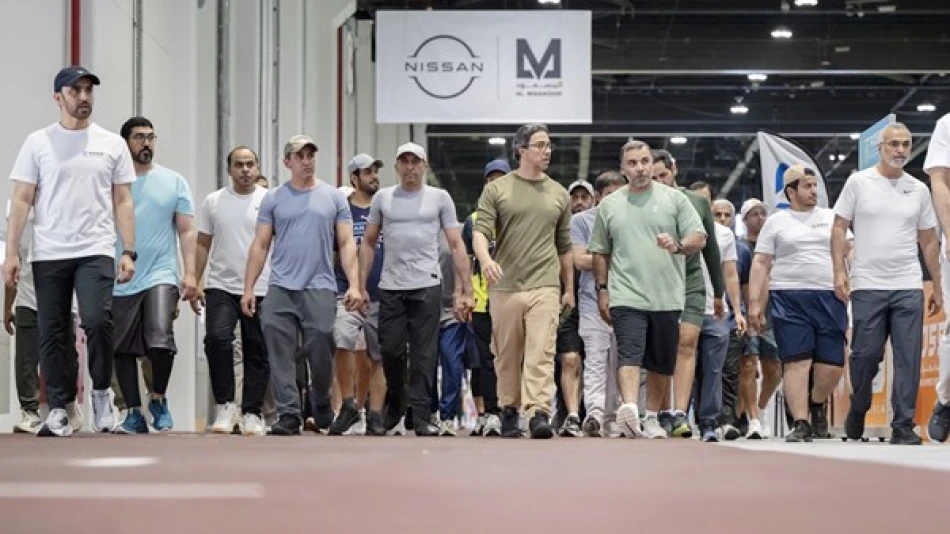
Abu Dhabi Sports Summer Festivities Attended by Mansour bin Zayed, Praising its Role in Promoting Healthy Lifestyles
UAE Deputy President Champions Community Sports Initiative in Major Summer Campaign
Sheikh Mansour bin Zayed Al Nahyan, UAE's Deputy President and Deputy Prime Minister, personally participated in Abu Dhabi's largest summer sports festival, signaling the government's commitment to promoting active lifestyles and community wellness during the region's challenging summer months. The initiative represents a broader Gulf strategy to diversify recreational offerings and build healthier societies beyond traditional economic sectors.
Massive Infrastructure Investment Targets Year-Round Activity
The "Abu Dhabi Sports Summer" event, organized by ADNEC Group and Abu Dhabi Sports Council, spans over 37,000 square meters at the Abu Dhabi National Exhibition Centre. The facility features more than 52 air-conditioned indoor courts and tracks covering 12 different sports, plus a 1.2-kilometer running track built to international standards.
This scale of investment reflects Abu Dhabi's systematic approach to infrastructure development, similar to Singapore's sports hub model or Qatar's pre-World Cup facility expansion. The emphasis on climate-controlled environments addresses a critical regional challenge—maintaining physical activity during extreme summer heat that can exceed 45°C (113°F).
Strategic Timing Addresses Regional Health Challenges
The summer sports initiative directly tackles seasonal inactivity that affects Gulf populations when outdoor exercise becomes dangerous. Regional health data consistently shows increased sedentary behavior during summer months, contributing to diabetes and obesity rates that rank among the world's highest.
Sheikh Mansour's personal participation in a community volleyball match demonstrates leadership engagement that typically accelerates program adoption in the UAE's governance model. This hands-on approach mirrors successful health campaigns in other Gulf states where royal family involvement significantly boosts public participation.
Economic and Social Returns on Sports Investment
The comprehensive facility design—targeting families, children, and individual athletes—suggests revenue diversification beyond traditional sports programming. Similar multi-use sports complexes in Dubai and Qatar have generated substantial returns through corporate partnerships, youth programs, and wellness tourism.
For investors and developers, the project indicates continued government spending on quality-of-life infrastructure, supporting the UAE's broader strategy to attract global talent and residents. The timing also aligns with increased focus on domestic tourism and entertainment options.
Regional Competition for Wellness Leadership
Abu Dhabi's sports summer initiative positions the emirate competitively against Saudi Arabia's Vision 2030 sports investments and Qatar's post-World Cup facility utilization. The UAE has consistently leveraged such programs to enhance its international reputation for innovation in addressing climate-related lifestyle challenges.
The program's emphasis on inclusive participation across age groups reflects lessons learned from successful Nordic countries' sports policies, adapted for Gulf cultural contexts and climate realities. This approach could serve as a model for other hot-climate regions globally facing similar public health challenges.
Most Viewed News

 Layla Al Mansoori
Layla Al Mansoori






